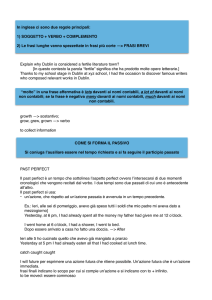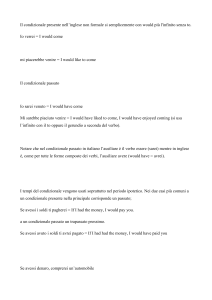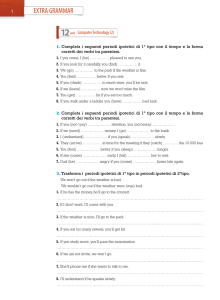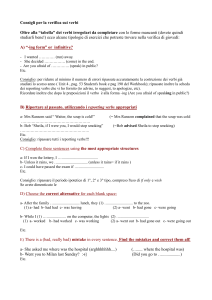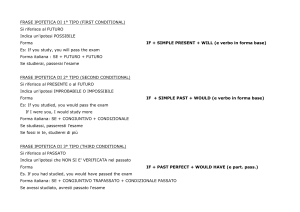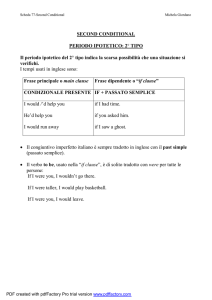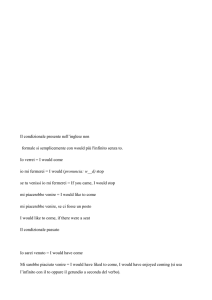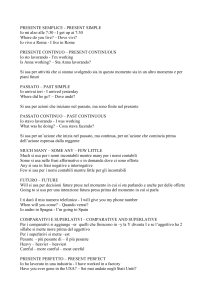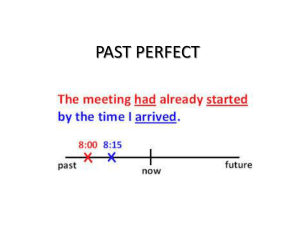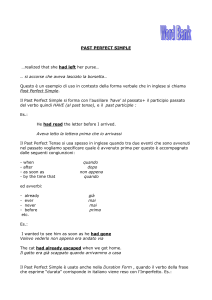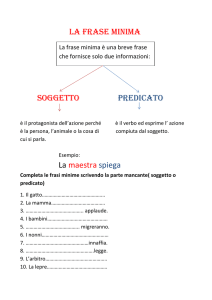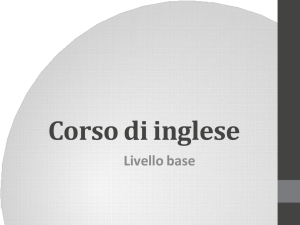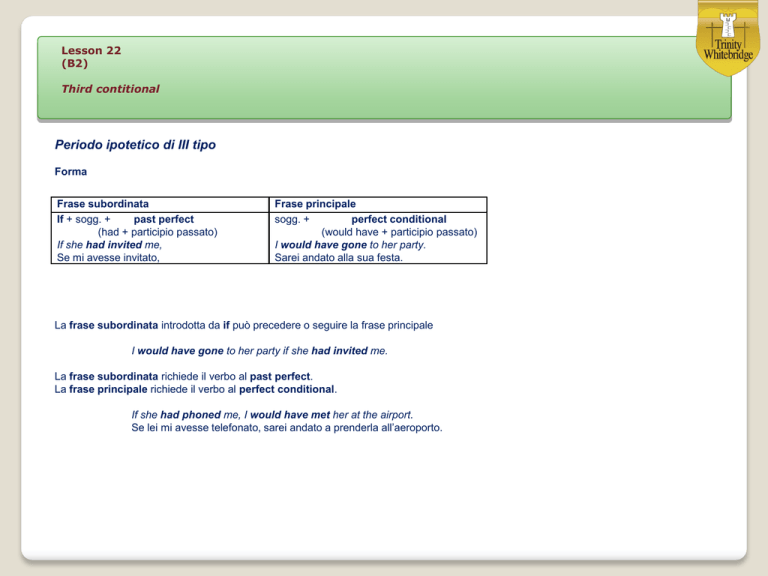
Lesson 22
(B2)
Third contitional
Periodo ipotetico di III tipo
Forma
Frase subordinata
If + sogg. +
past perfect
(had + participio passato)
If she had invited me,
Se mi avesse invitato,
Frase principale
sogg. +
perfect conditional
(would have + participio passato)
I would have gone to her party.
Sarei andato alla sua festa.
La frase subordinata introdotta da if può precedere o seguire la frase principale
I would have gone to her party if she had invited me.
La frase subordinata richiede il verbo al past perfect.
La frase principale richiede il verbo al perfect conditional.
If she had phoned me, I would have met her at the airport.
Se lei mi avesse telefonato, sarei andato a prenderla all’aeroporto.
Lesson 22
(B2)
Third contitional
Quando si usa
Il periodo ipotetico di III tipo si usa per:
• parlare di situazioni passate che non si sono realizzate perché le condizioni necessarie non si sono verificate.
If I had known he had no money, I would have lent him some.
Se avessi saputo che non aveva soldi gliene avrei prestati.
• esprimere rammarico o rimprovero per qualcosa che non si è fatto o verificato.
If you had studied, you would have passed the exam.
Se tu avessi studiato avresti superato l’esame.
Lesson 22
(B2)
Third contitional
Casi particolari
• Nella frase principale si possono usare could have, might have, e should have al posto di would have a seconda di ciò che si vuole
esprimere.
If you had told me about your problems, I could have helped you.
Se tu mi avessi detto dei tuoi problemi, avrei potuto aiutarti.
If Peter had been nicer to me, I might have accepted his invitation.
Se Peter fosse stato più carino con me, avrei potuto accettare il suo invito.
If you had met him, you should have told him.
Se tu lo avessi incontrato, avresti dovuto dirglielo.
• Si possono avere periodi ipotetici misti per dire che la situazione sarebbe diversa oggi se determinate condizioni si fossero realizzate nel
passato. In questo caso nella frase principale si usa il present conditional.
If I had married him, I would be very unhappy now.
(past perfect)
(present conditional)
Se lo avessi sposato sarei molto infelice adesso.
If she had accepted that job, she would earn much more money now.
Se avesse accettato quel lavoro, guadagnerebbe molto più danaro adesso.
EXERCISE 1
Immaginiamo questa situazione. Il responsabile del marketing di un’azienda si rammarica con i colleghi che i suoi consigli
per il lancio di un nuovo prodotto non sono stati seguiti.
Completiamo adeguatamente questi periodi ipotetici di 3° tipo.
1. If you (advertise) …………………………..………… the new product on TV, everybody (know)
……………………………………. about it.
2. If you (lower) ………………………………………… the price, it (be) ………………………………….. more
competitive on the market.
3. It (be) ……………………………...……….. a success if you (follow) ………………………………… my advice.
EXERCISE 2
Immaginiamo questa situazione. Tu racconti a un amico ciò che ti è successo questa mattina. Il tuo amico fa i suoi
commenti criticando il tuo operato.
Completiamo questi mini-dialoghi con i verbi tra parentesi al tempo e forma corretti.
1.
A: I stayed up late last night so I overslept this morning.
B: If you (not / stay) ……………………………… up late last night, you (not / oversleep)
………………………………… this morning.
2.
A: As I overslept I missed the bus.
B: If you (not / oversleep) ………………………………, you (not / miss) ……………………………… the bus.
3.
A: As I missed the bus I got to school late.
B: If you (not / miss) …………………………… the bus, you (not / get) …………………………… to school late.
4.
A: As I got to school late, the teacher told me off.
B: If you (not / get) ………………………….. to school late, the teacher (not / tell) ………………………….. you off.
EXERCISE 3
Completiamo adeguatamente questi periodi ipotetici misti.
1.
If we (take) ………………………… a faster train, we (already / be) ……………………………… in London by
now.
2.
If you (not / leave) …………………………… the map at home, we (not / be) ……………………………… lost
now.
3.
If there (not / be) ………………………………… so much traffic on the road, I (not / be) ……………………………
so late now.
4.
You (have) ……………………………….. a better job now if you (go) ……………………………….. to university.
EXERCISE 4
A. Abbiniamo adeguatamente le parti in A alle parti in B per formare dei periodi ipotetici di vario tipo tracciando delle
linee di diversi colori.
A
B
1. The dog would obey your orders
a) if they had called him earlier.
2. If you had told us you were coming,
b) the display lights up.
3. The doctor could have saved the man
c) if the wind is too strong.
4. When you lift the receiver,
d) if you had trained it properly.
5. The plane won’t take off
e) we would have met you at the airport
B. Di che tipo sono i cinque periodi ipotetici che abbiamo ottenuto?

